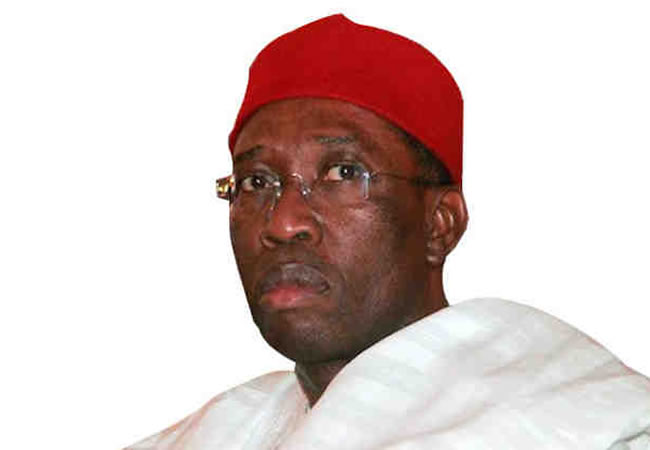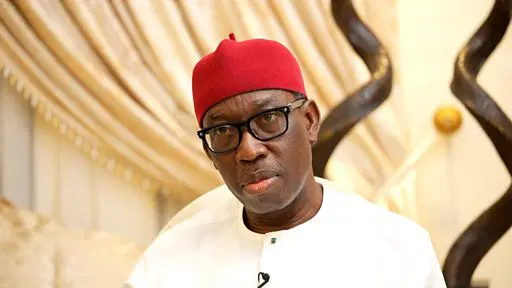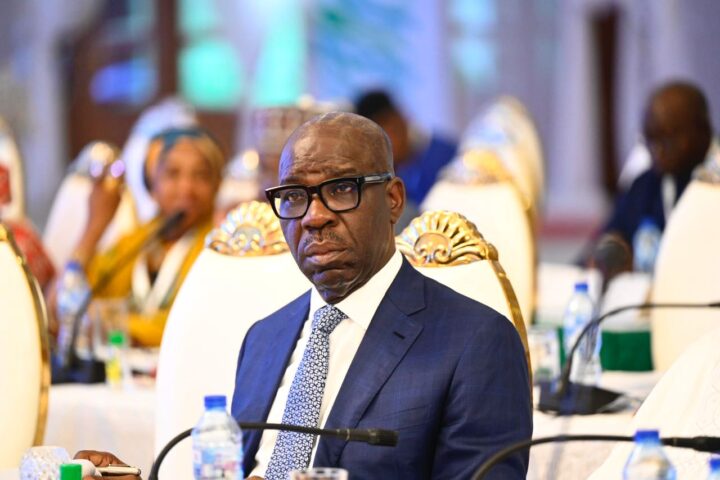N1.3 trillion fraud: Okowa’s Detention Sparks Calls for Probe of Ex-Governors

The detention of former Delta State Governor, Ifeanyi Okowa, has sparked widespread calls for a full investigation into allegations of massive financial mismanagement involving ex-governors of various states in Nigeria. Okowa, who served two terms as governor of Delta, is facing allegations of being involved in a N1.3 trillion fraud, and his detention has raised concerns about the need to probe other former state leaders who may be complicit in similar financial crimes.
According to reports, Okowa, who is also a former Vice Presidential candidate under the People’s Democratic Party (PDP), is accused of diverting billions of naira in state funds during his time in office. The alleged financial mismanagement came to light following the ongoing investigation into fraudulent activities in state governments across Nigeria. Okowa’s arrest has become a rallying point for critics who argue that former governors must be held accountable for the financial misdeeds committed during their tenures.
The National Economic Crimes Commission (EFCC), which has been at the forefront of the investigation, has yet to issue a formal statement about Okowa’s detention, but sources within the commission claim that evidence has been gathered to support the allegations against him. The EFCC’s efforts are part of a broader initiative to combat corruption in the public sector, particularly among politicians who have held significant office in the country’s state governments.
The financial scandal allegedly involving Okowa is part of a larger trend that has seen other former governors and state officials arrested or investigated for similar offenses. In recent years, there have been multiple cases of former governors being accused of embezzlement, money laundering, and abuse of office. However, critics argue that many of these investigations are politically motivated or lack sufficient evidence to secure convictions.
In the case of Okowa, the N1.3 trillion figure has drawn the attention of both local and international observers, especially given the size of the alleged fraud in relation to the state’s overall budget. The funds in question were reportedly meant for developmental projects, healthcare, and infrastructure, but have allegedly been diverted for personal gain by Okowa and other officials in his administration. The scandal has prompted demands from civil society groups, political commentators, and members of the public for a transparent investigation into the ex-governor’s financial dealings.
Advocates for greater accountability in Nigerian politics have long called for stronger measures to ensure that public officials, especially those in high positions like state governors, are not allowed to embezzle or misappropriate public funds without consequence. Many Nigerians have voiced frustration over the persistent cycle of corruption in the country’s political system, which has seen politicians enjoy impunity despite the overwhelming evidence of their involvement in financial misconduct.
In response to the calls for a broader probe into the activities of former governors, several lawmakers and legal experts have emphasized the importance of transparency in investigating such high-profile cases. Some have suggested that a commission of inquiry be established to investigate the financial records of past state governors and hold them accountable for any irregularities or mismanagement.
Moreover, the case of Okowa has drawn attention to the need for comprehensive reforms in Nigeria’s governance structures, particularly in the areas of financial oversight and public sector accountability. For many Nigerians, the scandal represents a microcosm of the larger issues plaguing the country’s political system, including the lack of checks and balances, weak institutional frameworks, and the failure to prosecute those who engage in corruption.
As the investigation into Okowa’s alleged involvement in the N1.3 trillion fraud continues, there are growing calls for the authorities to take decisive action and ensure that any guilty individuals face the full consequences of their actions. Public trust in the Nigerian political system is already fragile, and many Nigerians are eager to see meaningful steps taken to restore confidence in the country’s governance and fight corruption at all levels of government.
In conclusion, Okowa’s detention has not only reignited the debate about the level of corruption in Nigeria’s state governments but has also prompted calls for a broader investigation into the financial dealings of all former governors. Nigerians are watching closely as the legal proceedings unfold, hoping for a resolution that upholds the principles of justice, accountability, and transparency.





Responses